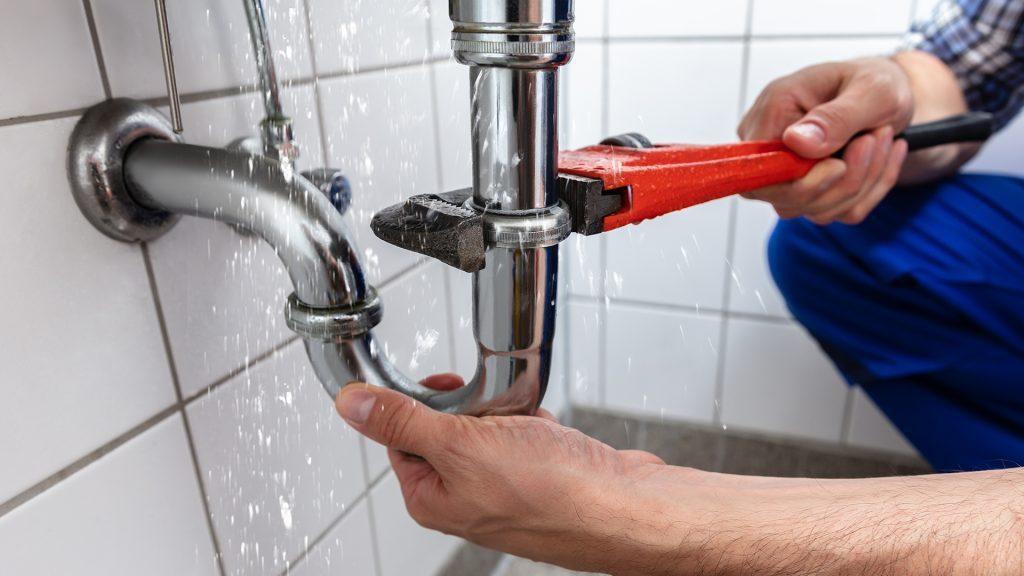
Plumbing issues can strike at the most inconvenient times, disrupting your daily routine and causing unnecessary stress. Whether you’re facing a leaky faucet, a clogged drain, or a major pipe burst, having access to reliable plumbing services and reputable plumbing companies is essential. This article will walk you through the types of plumbing services available, the characteristics of trustworthy plumbing companies, and tips for making an informed decision.
1. Understanding Common Plumbing Services
1.1 Emergency Repairs
Burst Pipes: When a pipe bursts, prompt action is crucial to minimize water damage. A qualified plumber can locate the source, shut off the water supply, and replace or repair the damaged section.
Sewer Line Backups: Blocked or broken sewer lines can lead to foul odors and unsanitary conditions. Professionals use cameras and hydro-jetting to clear blockages safely.
1.2 Routine Maintenance
Drain Cleaning: Over time, hair, grease, and debris can accumulate in your drains. Regular cleaning prevents backups and keeps water flowing smoothly.
Leak Detection and Repair: Even minor drips can waste hundreds of gallons annually. Plumbers use specialized tools—like infrared cameras and acoustic listening devices—to pinpoint leaks behind walls or under floors.
1.3 Installation Services
Water Heaters: Whether you need a traditional tank model or a tankless system, certified technicians ensure proper sizing, safe installation, and efficient operation.
Fixtures and Faucets: Upgrading to low-flow faucets or installing a new kitchen sink requires precise fitting and sealing to prevent future leaks.
Bathroom Remodels: If you’re renovating a bathroom, plumbing companies coordinate pipe rerouting, fixture placement, and compliance with local codes.
1.4 Preventive Inspections
Annual Checkups: A scheduled inspection can reveal early signs of corrosion, pipe damage, or water pressure issues before they develop into costly repairs.
Water Quality Testing: Some plumbing companies offer testing for hardness, pH, and contaminants—especially important in areas with known water concerns.
2. Key Characteristics of Reputable Plumbing Companies
2.1 Proper Licensing and Insurance
A reliable plumbing company will hold the necessary state or local licenses, ensuring technicians meet industry standards. Additionally, they should carry liability insurance to protect you against accidental damage during repairs.
2.2 Transparent Pricing
Look for companies that provide detailed estimates—either flat-rate or clearly itemized—before beginning work. Beware of technicians who insist on charging “by the hour” without explaining labor rates or potential additional fees.
2.3 Customer Reviews and References
Online Ratings: Websites like Google, Yelp, or Angie’s List aggregate customer feedback. Focus on overall ratings and read through comments about punctuality, work quality, and post-service cleanup.
Word-of-Mouth: Friends, family, and neighbors can often recommend a plumber they’ve used personally. Real-life referrals typically come with honest pros-and-cons.
2.4 Availability and Response Time
Plumbing emergencies rarely happen during convenient business hours. A company that offers 24/7 emergency service or rapid response guarantees you won’t be left waiting when a pipe bursts at midnight.
2.5 Warranty and Follow-Up Services
Trustworthy companies stand behind their work. Check for warranties on parts (e.g., new water heaters or fixtures) and labor—usually ranging from 30 days to a year. Some firms also offer annual maintenance plans at discounted rates.
3. How to Choose the Best Plumbing Company for Your Needs
Define Your Requirements
Scope of Work: Determine whether you need a simple repair, a full installation, or regular maintenance.
Budget Constraints: Outline your maximum spending before obtaining quotes. Sharing a budget range can help plumbers recommend solutions that fit within your limits.
Gather Multiple Quotes
Request at least two to three estimates from different plumbing companies.
Compare not only the bottom-line price but also what each quote includes (e.g., permits, cleanup, parts).
Verify Credentials and Experience
Ask for proof of license and insurance.
Inquire about how long the company has been in business and whether technicians receive ongoing training—especially important for complex systems such as tankless water heaters or smart-home integrations.
Check for Specialized Expertise
If you have older piping (e.g., galvanized steel or lead lines), find a company experienced in repiping homes.
For commercial projects or large-scale renovations, choose firms that handle similar scope (restaurants, apartment complexes, etc.).
Assess Customer Service and Communication
Does the company return calls or emails promptly?
Are technicians polite, respectful of your property (using shoe covers, setting drop cloths), and willing to explain the problem and solution clearly?
Review Warranties and Guarantees
Confirm what’s covered and for how long.
Determine if warranty repairs are handled in-house or if you need to call the manufacturer.
4. Tips to Avoid Common Pitfalls
Beware of “Too Good to Be True” Prices: A quote significantly lower than competitors might indicate substandard parts, unqualified labor, or surprise add-on fees.
Get Everything in Writing: Verbal agreements can lead to misunderstandings. A written contract or work order specifying services, costs, and timelines protects both parties.
Confirm Disposal and Cleanup: Some companies include debris removal; others charge extra for hauling away old pipes or fixtures. Clarify this upfront.
Watch for High-Pressure Sales Tactics: Legitimate plumbers want to solve your issue without upselling unnecessary upgrades. If you feel pushed to buy a premium fixture or service, step back and seek a second opinion.
5. The Value of Investing in Quality Plumbing Services
Long-Term Cost Savings: Properly installed fixtures and well-maintained pipes reduce water waste, lower utility bills, and prevent catastrophic failures that require expensive repairs.
Enhanced Safety and Health: Leaks or mold growth due to untreated plumbing issues can compromise indoor air quality. Reliable companies ensure safe water delivery and proper drainage.
Increased Home Value: If you’re planning to sell, a history of professional maintenance and documented plumbing upgrades reassures buyers and can even boost appraisal values.
Peace of Mind: Knowing that licensed professionals are on call—ready to address emergencies or perform preventive checks—reduces stress and avoids unexpected disruptions.
Choosing the right plumbing services and partnering with a reputable plumbing company is more than just finding someone who can tighten a faucet or unclog a drain. It involves verifying credentials, comparing detailed estimates, and prioritizing transparent communication. By understanding the types of services offered—emergency repairs, routine maintenance, installations, and preventive inspections—you can specify your needs and find a company equipped to handle them efficiently. Investing in quality workmanship ultimately saves time, money, and frustration, while protecting your home’s infrastructure for years to come. Whether you’re facing an urgent plumbing crisis or simply want to schedule an annual inspection, following the guidelines above will help you make an informed choice and secure dependable service.




